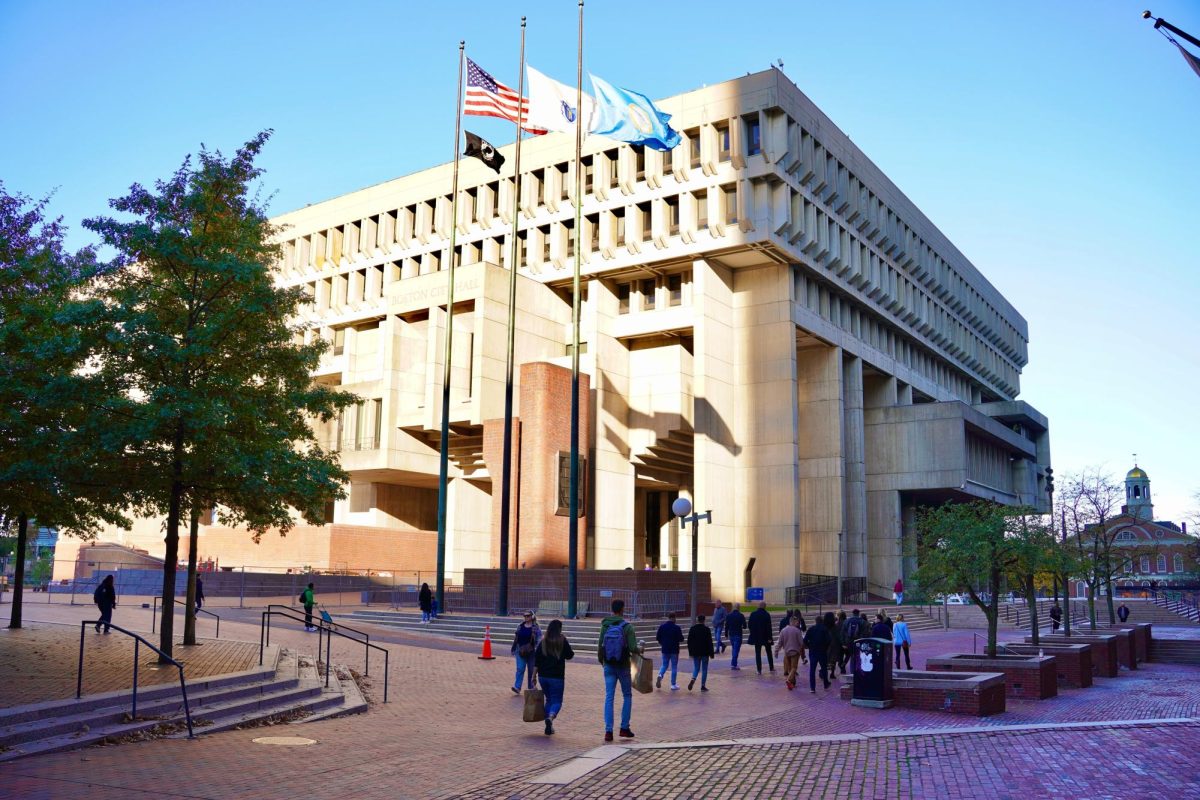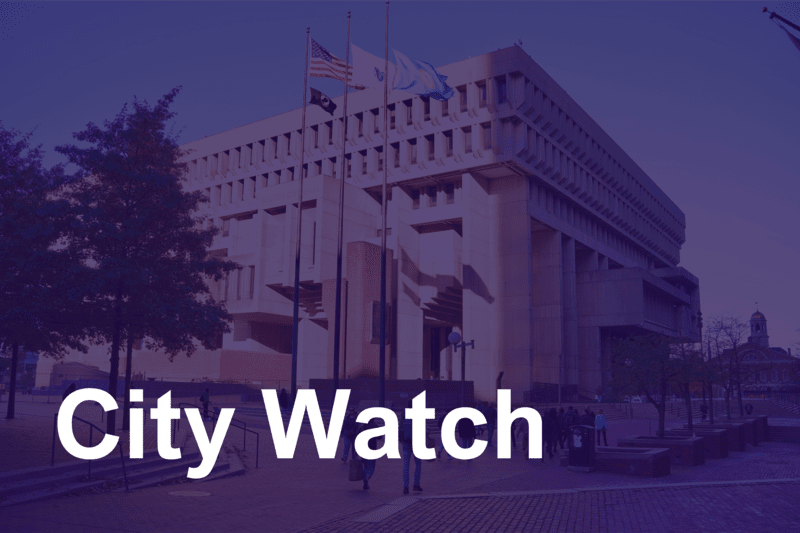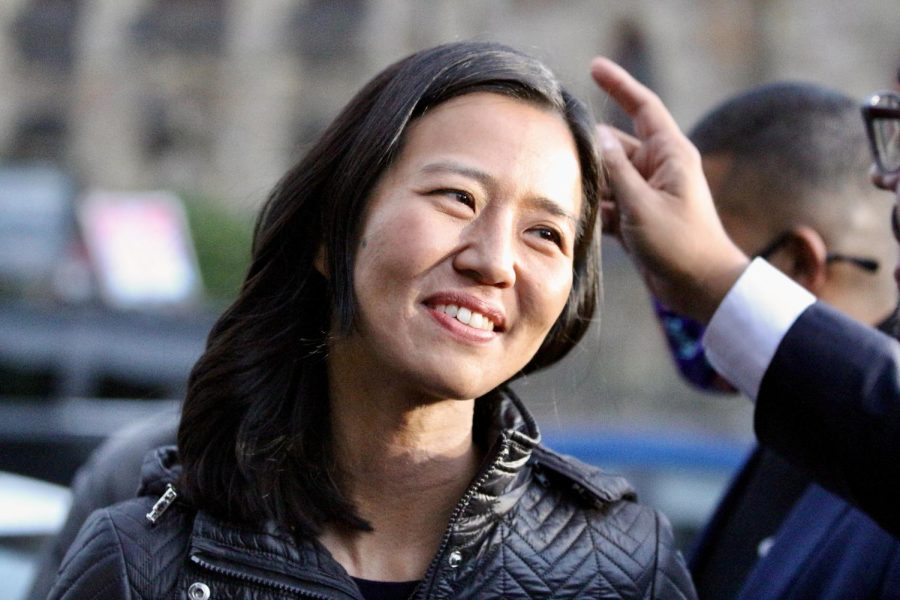In last week’s session, City Council proposed a number of new ideas for policy. Among the proposals was one measure to improve pedestrian safety following the death of a 4-year-old girl. Later in the meeting, Councilor Julia Mejia submitted a proposal to create an office for city accountability. Additionally, the first steps were put in place for the council to discuss Mayor Michelle Wu’s proposal to increase taxes on commercial properties to prevent tax increases for residents.
Council acknowledges traffic deaths and vows for change
The death of a pedestrian fatally struck at an intersection next to the Boston Children’s Museum has prompted community members around Fort Point to call for change.
On Saturday March 30, members of the Fort Point neighborhood held a vigil for the victim, 4-year-old Gracie Gancheva. In attendance was Councilor Ed Flynn and Jascha Franklin-Hodge, the city’s Chief of Streets.
“I can’t accept the idea that four-year-olds can be killed on our streets,” Franklin-Hodge said.
Flynn and the Franklin-Hodge were not the only politicians to grieve the loss. In her statement about the event, Councilor Ruthzee Louijeune mentioned that Mayor Wu attended the child’s funeral.
According to MassDOT data, there have been 10 fatal car accidents involving pedestrians since the beginning of the year. This includes the death of a man in a wheelchair killed by a cement truck in South Boston on April 3.
At last week’s meeting, councilors agreed with community sentiment that more needs to be done to protect pedestrians.
“These tragedies remind us of the work that must be done to realize Vision Zero, which is the goal to have zero serious or fatal traffic crashes,” said Flynn.
Vision Zero was a policy adopted by former Mayor Marty Walsh’s administration in 2015. Changes included lowering the citywide speed limit to 25 miles per hour. Flynn suggested the speed limit be dropped further.
“Twenty-five hours is excessive driving around a dense neighborhood in Boston. I think it should be 20 miles an hour – I even think it should be 15 miles an hour. But driving 25 miles an hour in residential streets is unhealthy and unsafe.”
Councilor Enrique Pepén highlighted Providence as an example of a city that Boston should use as an example.
“Providence does a fine job of using their traffic light cameras for enforcement where they ticket speeders and violators of red lights,” Pepén said. Additional recommended provisions included adding speed humps on more main streets, as well as the suggestion that councilors should use mitigation funds to improve infrastructure.
Flynn has been an active proponent of pedestrian safety, but does not share the same enthusiasm for other road improvements such as bike lanes and bus lanes. On April 4, Flynn shared the view that “the use of concrete bike lanes” in South Boston will increase congestion and limit response time for first responders. Following the rollout of a pilot bus lane program on Summer Street in his district, Flynn said the bus lanes had the potential to negatively impact “many local businesses and industries in the South Boston Waterfront and those that the city hopes to attract”.
“This is so much more than an accident. There is much more we can do to prevent this,” said Councilor Liz Breadon. The docket was referred to the Committee on Planning, Development, and Transportation. A hearing has yet to be scheduled.
Mejia seeks more accountability and transparency in city government
In a measure which follows last week’s vote on restructuring the BPDA, Mejia proposed the creation of a new City Inspector General’s office which would “detect and prevent inefficiency, waste, abuse, fraud, corruption” in Boston’s municipal government.
Co-sponsoring Councilors Brian Worrell and Tania Fernandes Anderson noted the list of other cities which currently have an inspector general position includes New York City, Chicago, Detroit, Washington D.C., and Baltimore. State Attorney General and former City Councilor Andrea Campbell was also frequently cited as an influence on the ordinance.
“This ordinance builds off [Campbell’s] work five years ago to ensure a strong commitment to promoting honesty, integrity and transparency in Boston city government and set the precedent to responsible fiscal management and public trust,” said Councilor Worrell.
Campbell first advocated for a inspector general position in 2019 after a planning developer was found guilty of accepting bribes. Mejia said she called Campbell while writing the proposed ordinance for her advice. Councilor Gabriela Colletta used the history of the previous proposal to explain why more city oversight is required.
“Having a municipal level inspector general in addition to the state level is a good thing due to the fact that the state office never investigated the incidents that happened in City Hall,” Coletta said. “We had to outsource expensive lawyers to pay for those investigations. It was not fiscally responsible of us to outsource these services when we could have them in-house. And those reports were never independent and they were never public.”
The ordinance was referred to the committee of Government Operations, and a hearing has yet to be scheduled.
City Council to discuss mayor’s tax reforms in planned hearing
City Council received a home rule petition from Mayor Wu to approve her shift in tax rates on commercial properties within the city. The petition asks for “a temporary legislative tool to protect residential taxpayers from any potentially drastic increase in property tax bills caused by a decline in commercial values.”
A February 2024 report from The Boston Policy Institute claimed that “Boston is likely to face a cumulative revenue shortfall of more than $1 billion in the next five years” as a result of declining property value and an increase in remote employees.
In the proposal, Wu stated that the request includes an option to implement the shift over the next three years to provide additional flexibility, and that the city council would be involved in approving any tax shifts which may occur as a result of this legislation.
The home rule petition was referred to the committee of Government Operations, and a hearing has not yet been scheduled.



